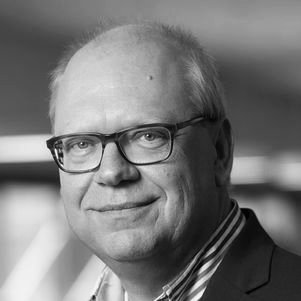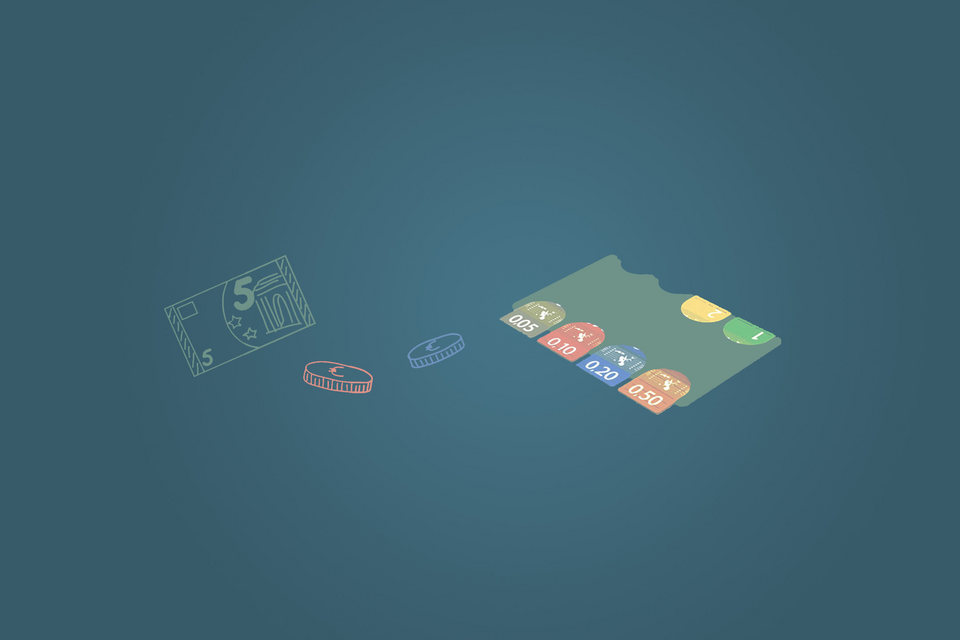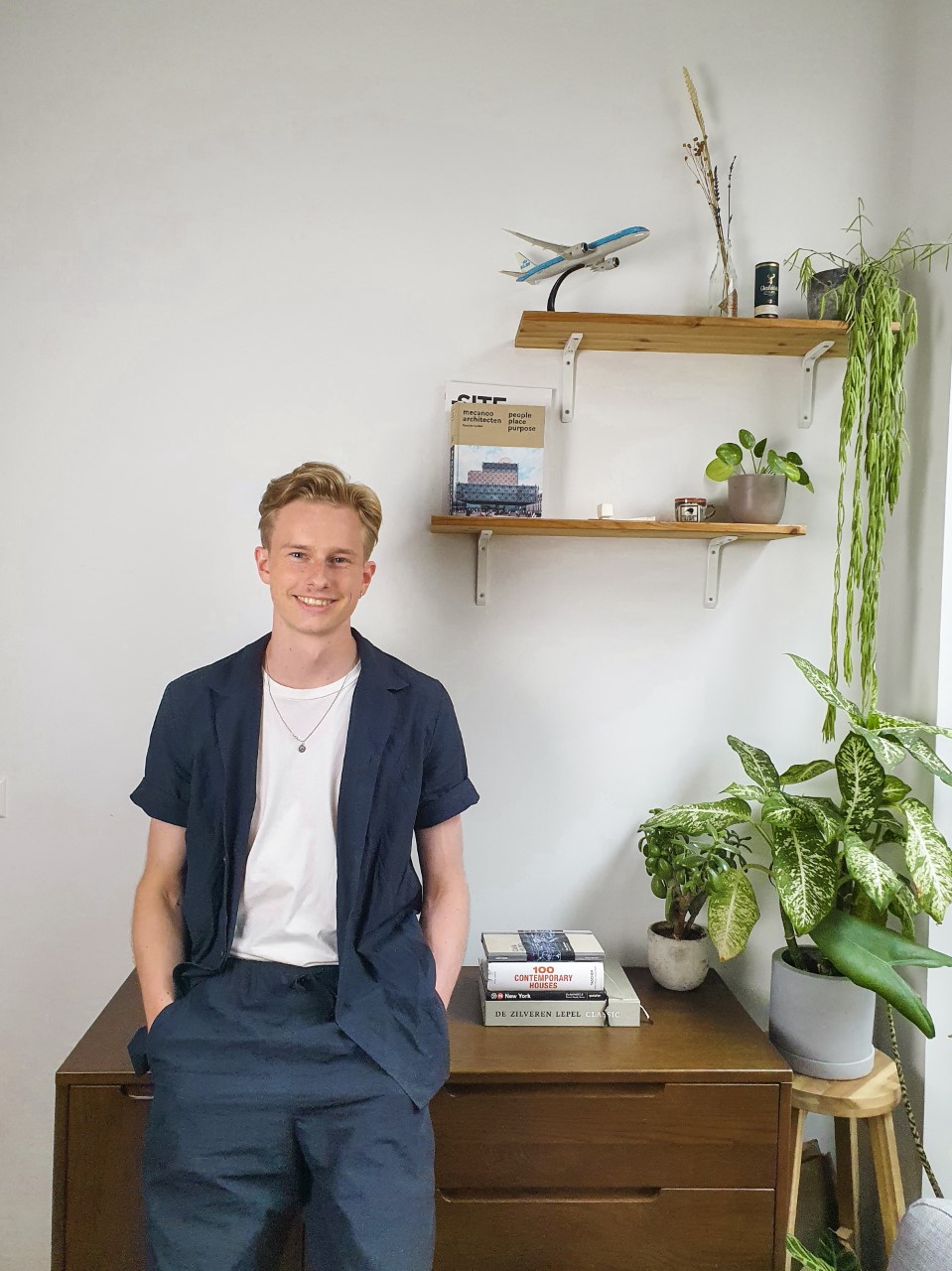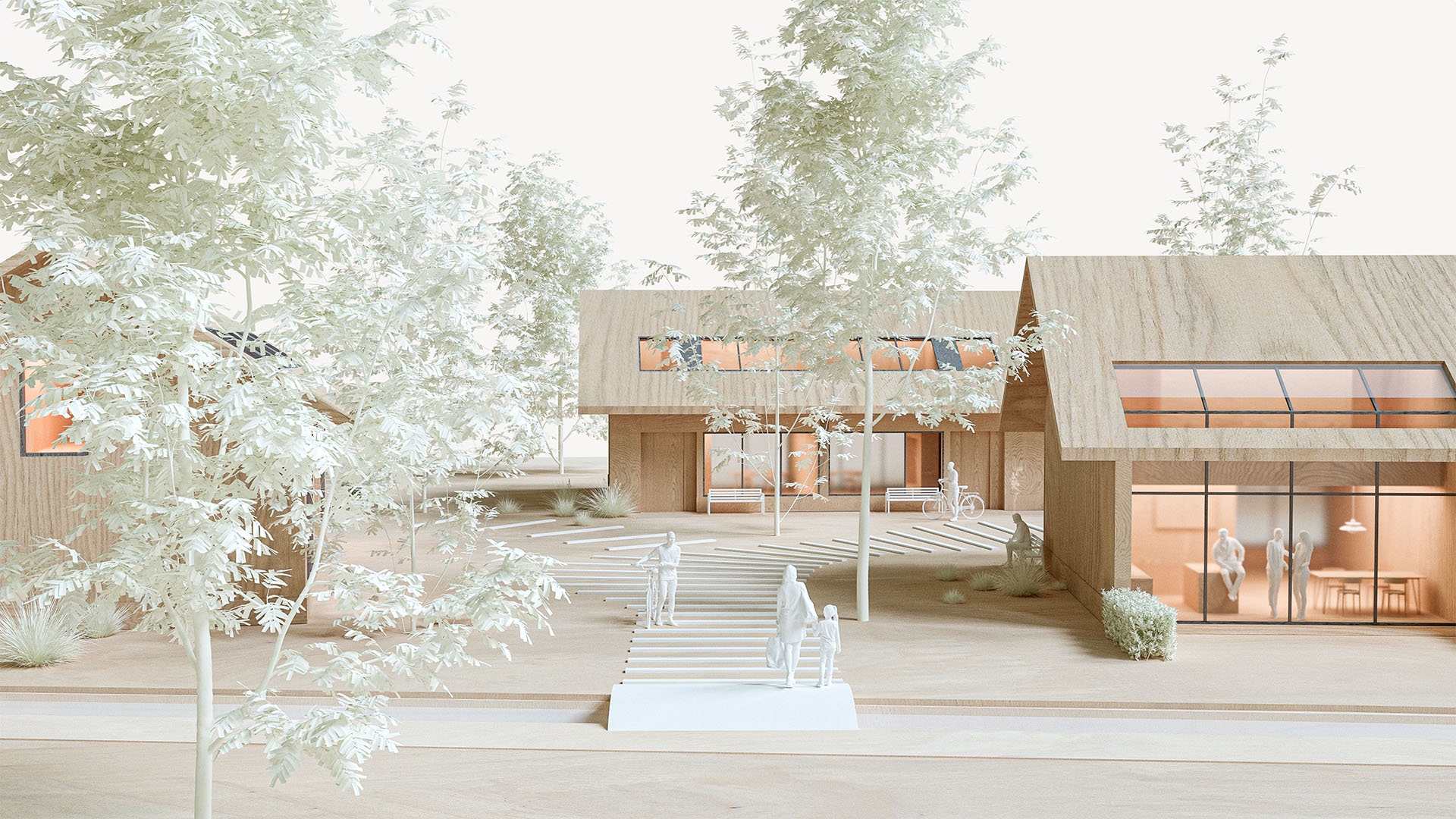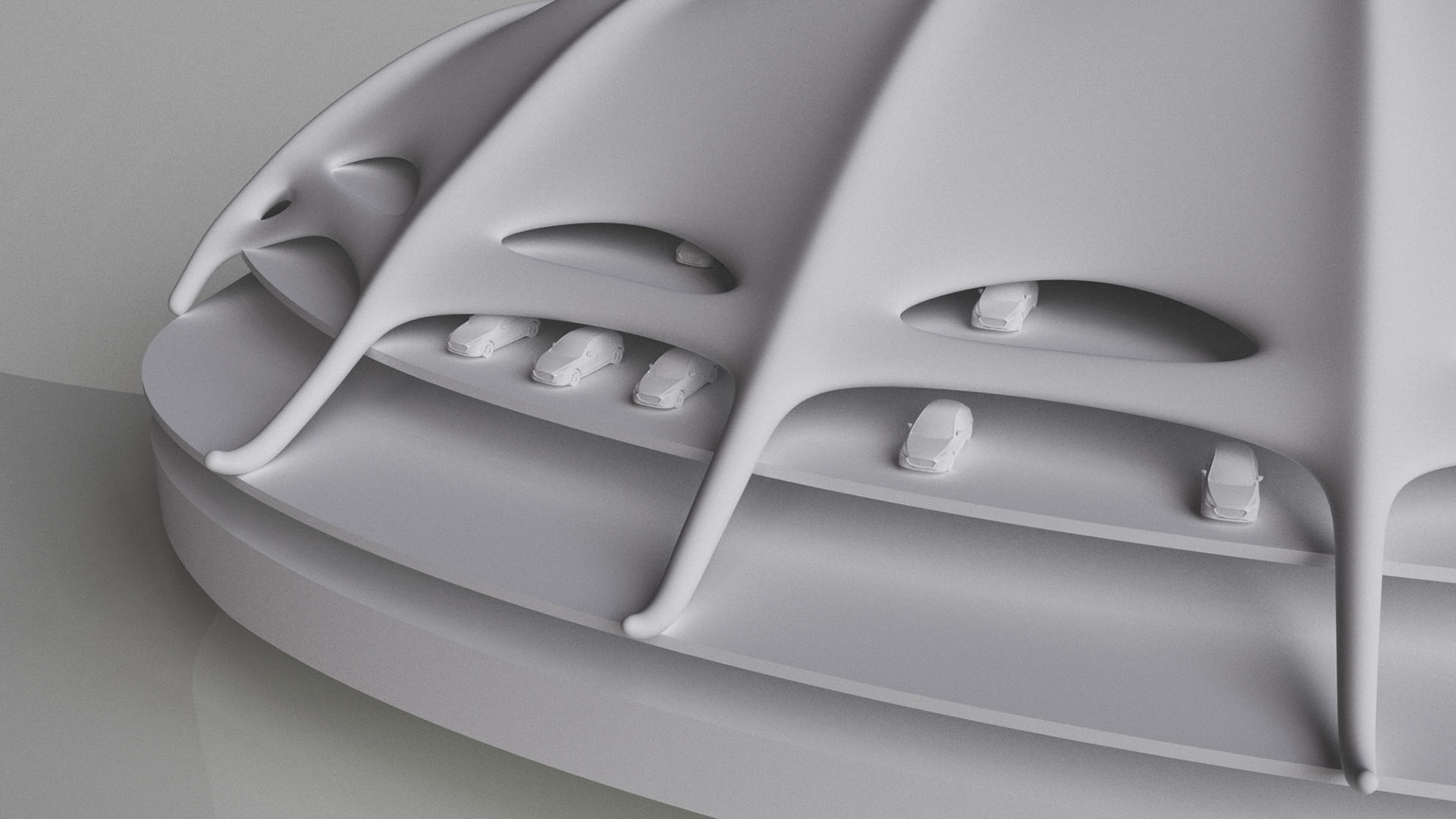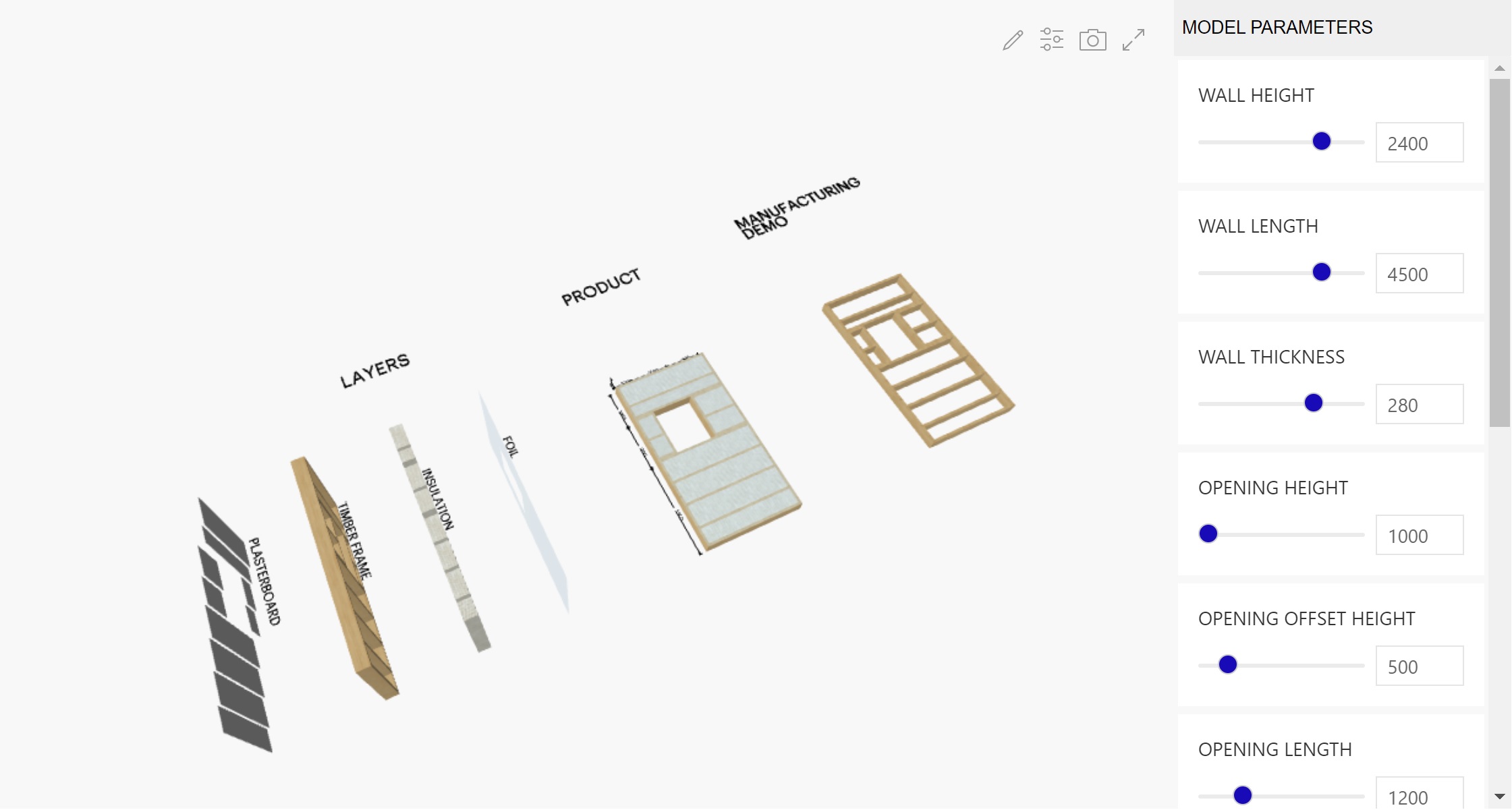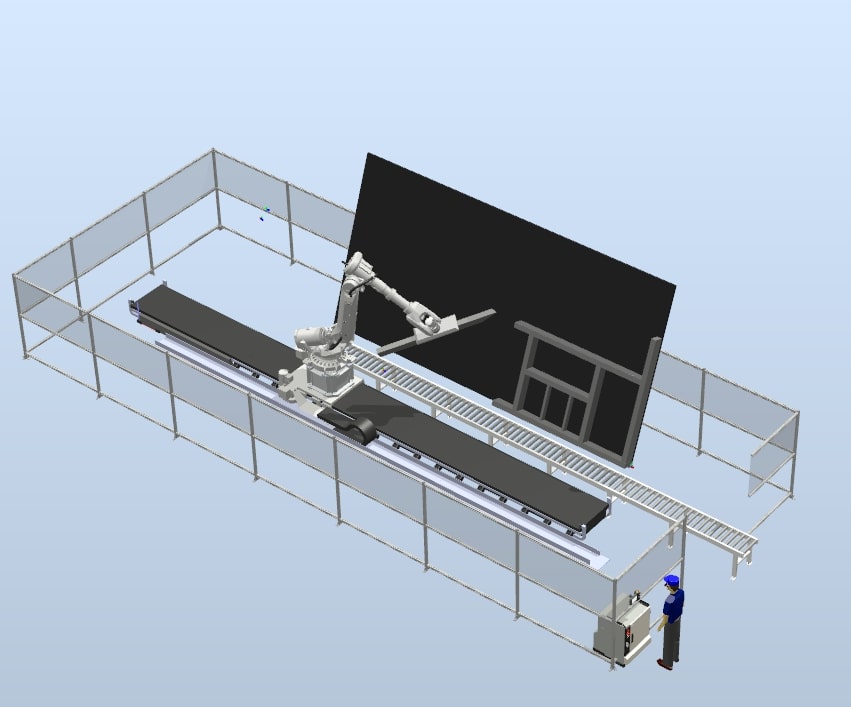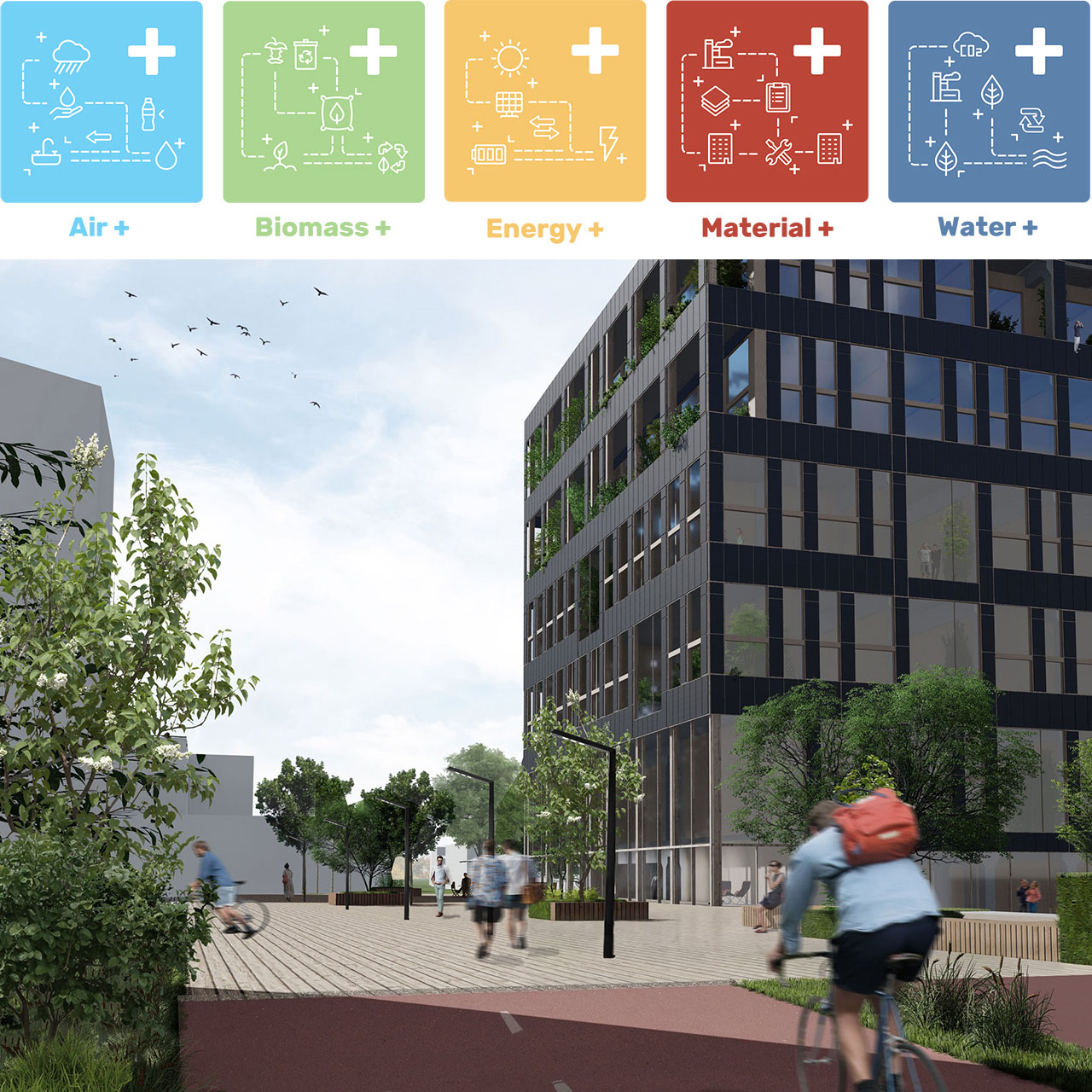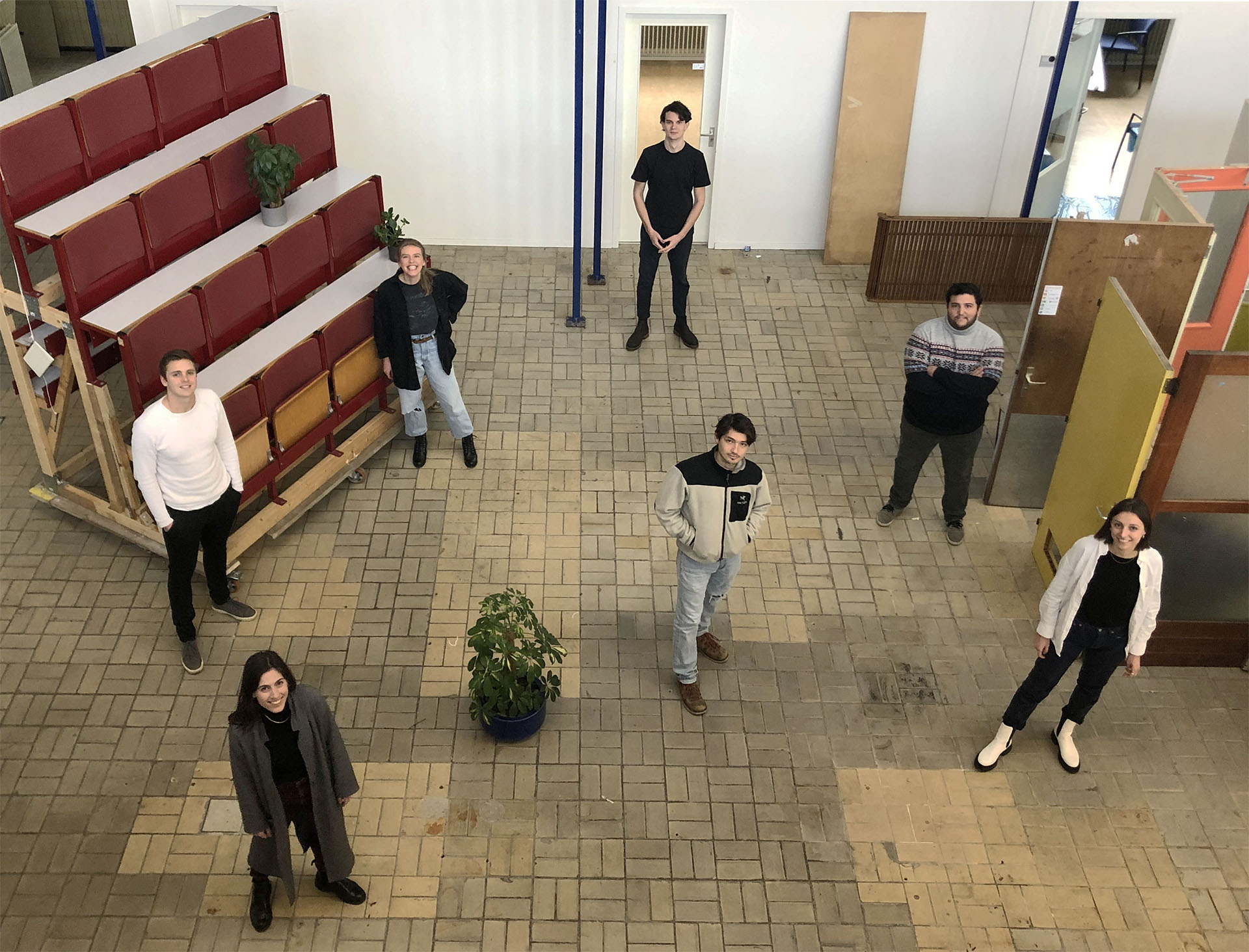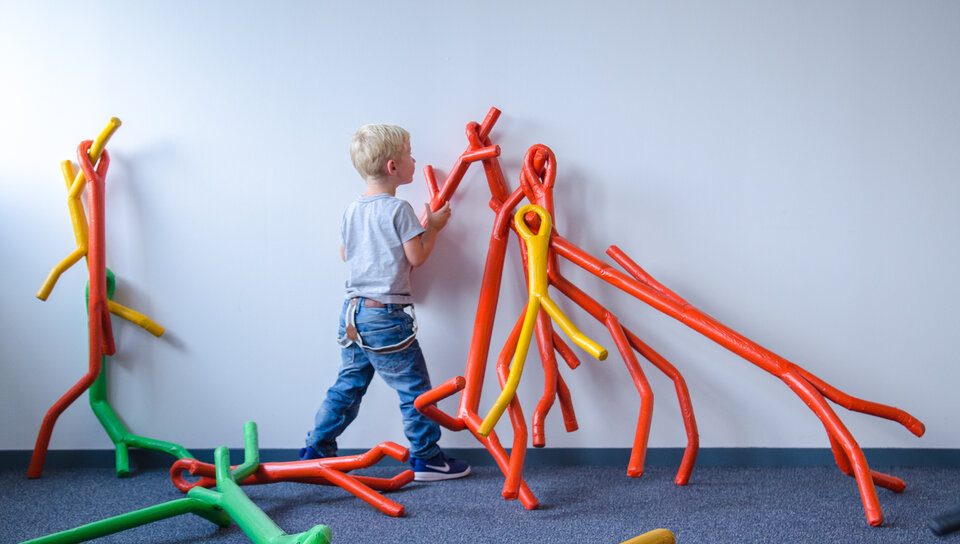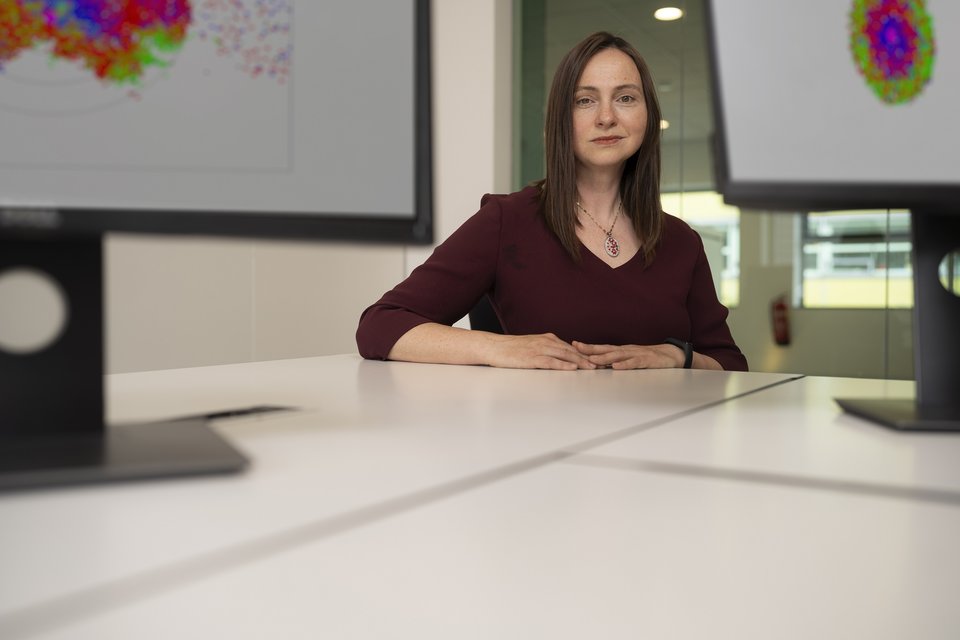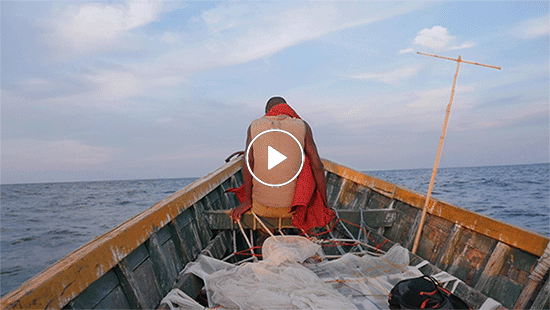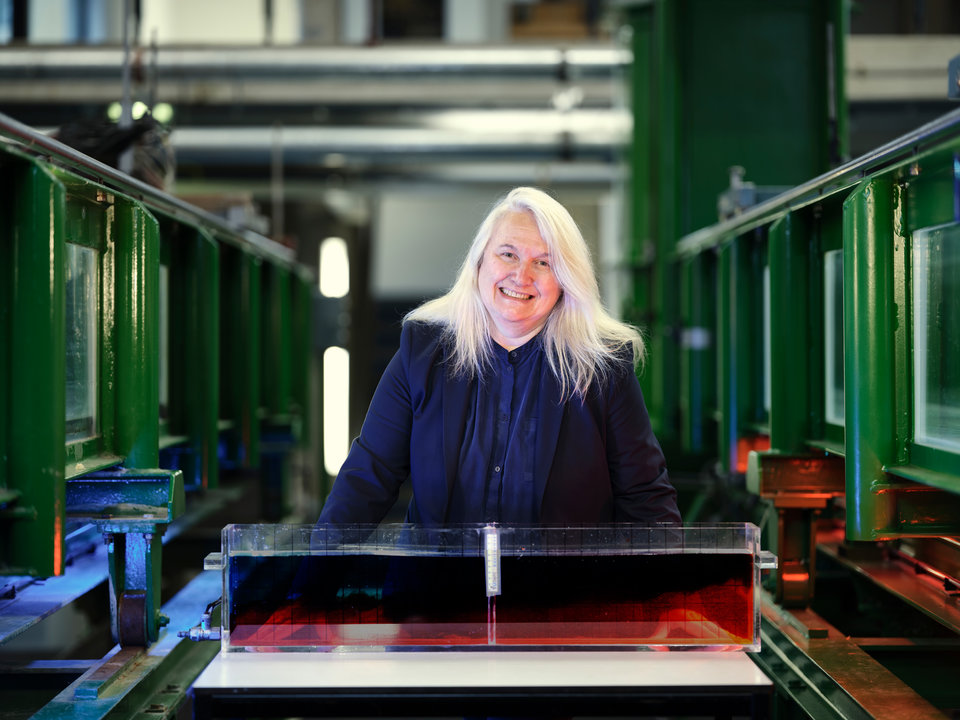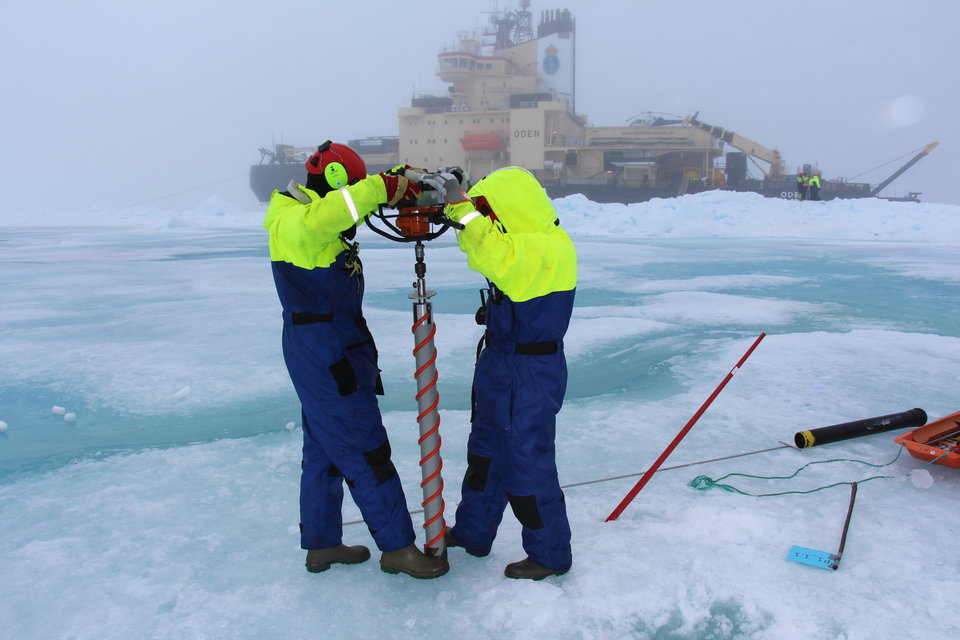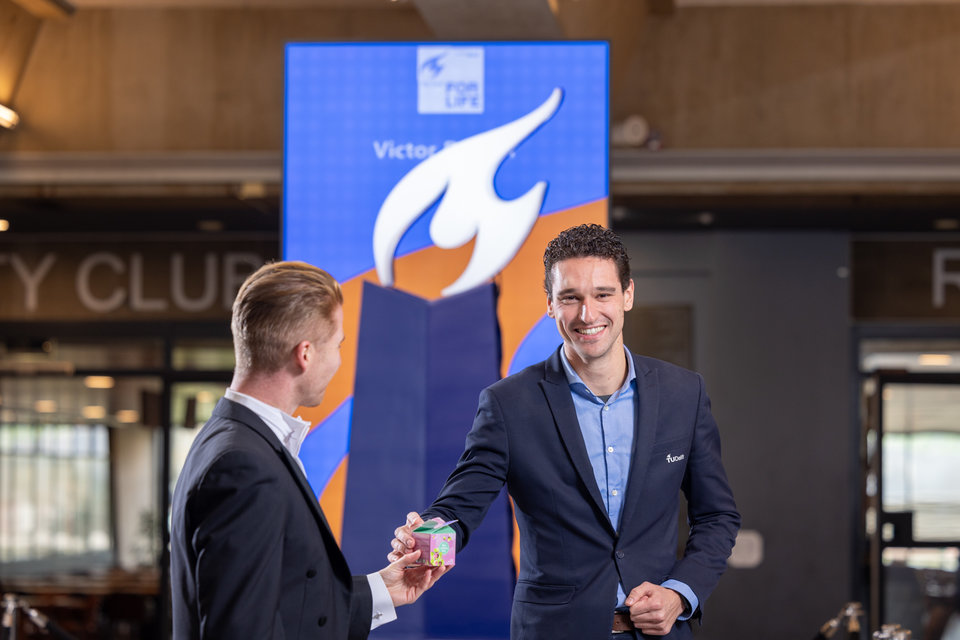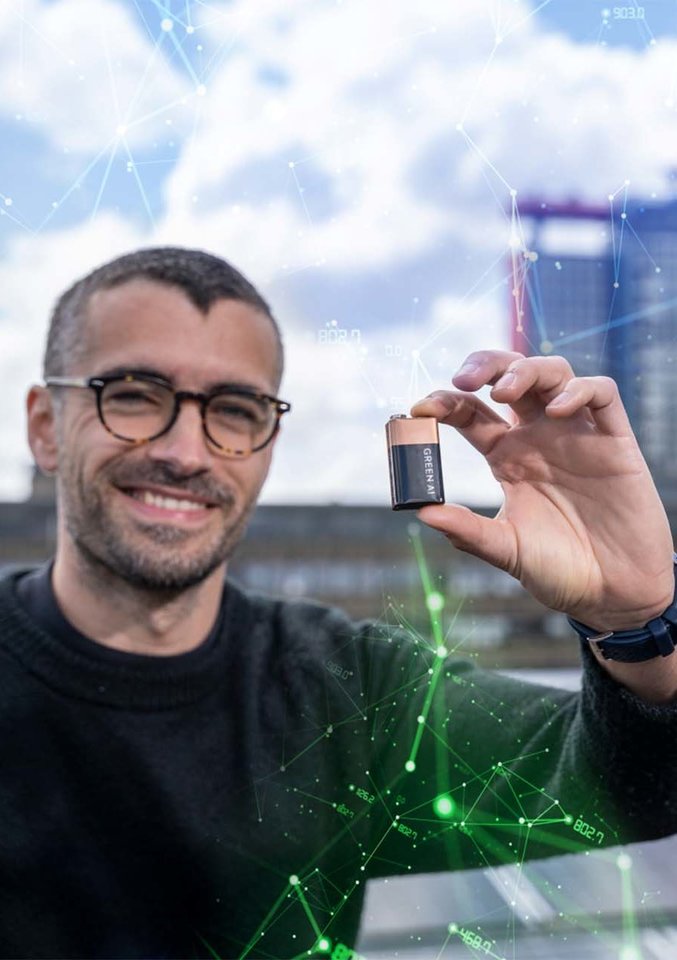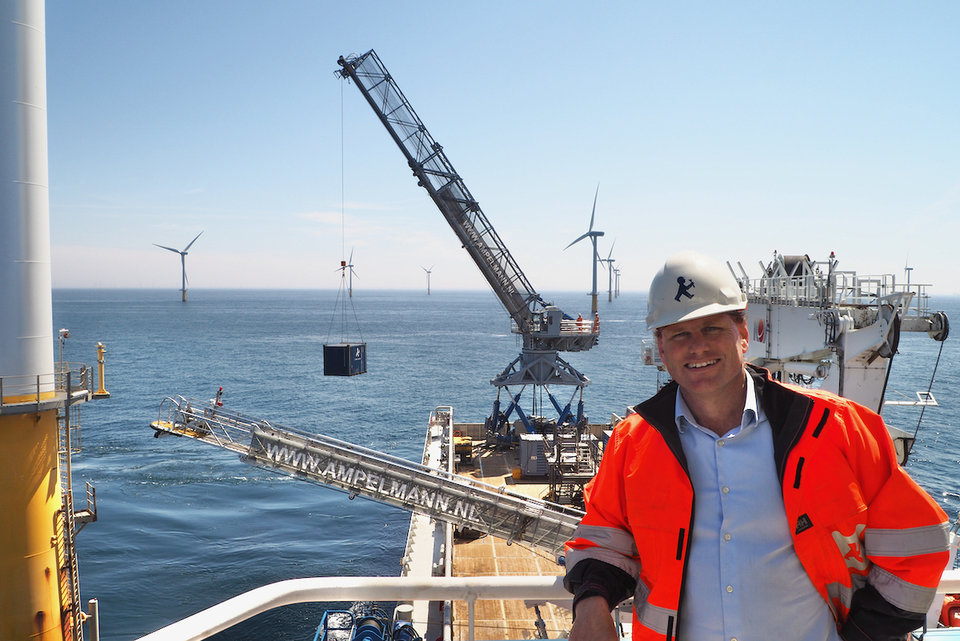Mitigating the impact of climate change, facilitating the energy transition, solving the housing crisis… The built environment needs to address pretty big challenges, which ask for innovative solutions. Students at the Faculty of Architecture and the Built Environment have plenty of good ideas to create the necessary innovations, but how can their ideas successfully evolve?
Those who study Architecture and the Built Environment are not just becoming designers and engineers. Many alumni of the faculty end up as entrepreneurs in their chosen fields, which go beyond the disciplines of architecture, urbanism, and landscape architecture. Examples are companies that offer a lifestyle subscription service for premium furniture, who specialise in visualisations of conceptual design ideas, who are experts on mass customization and robotics, or who create net-positive transformation strategies for existing buildings. Yet the curriculum of the faculty did not include courses on entrepreneurship. And those are vital, because having a good idea alone is not enough to launch a successful company. What problem are you solving exactly, how can you position your idea within the market, how can you connect to different stakeholders? Good ideas can only lead to change if they have a place to grow.
Eco-system for collaboration
The field of the built environment and the accompanying industry are relatively traditional, without an established platform for growth and collaboration. This means start-ups often encounter difficulties with launching and with scaling up. “From a preliminary analysis and my own experiences as an entrepreneur, I have found that there is need for such a collaborative environment. An eco-system for the development of new ideas, testing them, and investing in them,” explains assistant professor Design and Construction Management Tong Wang. “If you only focus on your own domain, it becomes difficult to have a holistic view. Scattered information prevents us from evolving and innovating for the big challenges we face, like the energy transition, circularity and sustainability. We need an environment where stakeholders can work together and build trust in order to bring ideas to the next level.”
That is precisely why professor Hans Wamelink started the platform BK-Launch, which connects students, start-ups, experts, and research on innovation in the built environment. The platform aims to create an entrepreneurial community for student ventures, acting as an incubator for exceptional ideas and connecting students to partners from practice.
Bottom-up development as basis for innovation
As professor of Construction Management and Entrepreneurship, Wamelink has come across many large research programmes. “The innovation prowess from these programmes is often limited. The most innovative changes in our industry come from bottom-up developments. BIM modelling is a good example of such a bottom-up innovation. These new ideas are needed to renew the building sector, but they need to be facilitated and allowed to grow,” explains Wamelink.
The new platform BK-Launch offers the necessary growing conditions for such ideas and connects to existing TU Delft programmes on entrepreneurship. The big difference: good ideas in the built environment often revolve around providing innovative services, rather than purely technical solutions. Wamelink: “BK-Launch combines the best of both worlds. The courses are infused with theory on entrepreneurship by the Delft Centre for Entrepreneurship of the Faculty of Technology, Policy and Management. At the same time, students are coached by mentors from our own faculty, who all have experience in running their own company. Colleagues from all departments help coach the students in developing a business plan that is uniquely suited to the field of the built environment.”
Defining entrepreneurship
What exactly makes a good entrepreneur? “An entrepreneurial attitude is about defining ambitions, starting something new, being willing to try and fail and try again. It is about listening to your customers and sticking your neck out for what you believe in,” characterises Wamelink. “Within the built environment, entrepreneurship is never just about making money. It is always connected to addressing important societal issues.” This is clearly illustrated by the wide-ranging output of the courses connected to BK-Launch. The elective course on entrepreneurship has run twice now, each time with fifty enthusiastic students, and the first edition of the design studio has resulted in no less than eleven concrete business plans. “Some students also discovered that being an entrepreneur is not for them,” adds Wamelink. “It is also important to discover if entrepreneurship fits your personality and your personal goals. I am curious to see which students will take the next step with their idea and business plan.”
Go try your idea, test if it works! You can always spare a few hours a week to work on it. And if it works, you can spend more time on it and develop your idea more fully.
Koen Stam, Tomø
Different paths towards implementation
There are many different ways to develop a good idea into an effective start-up or company. Tomø and Drip Visual are sample results from the BK-Launch design studio. As BK-Launch ventures, they will continue to get support from the platform. The start-up idea Meraki was awarded with a BK-Launch voucher, which helps fund the students’ first steps on their entrepreneurial journey. But up-and-running start-ups can also profit from and contribute to the platform. Think of companies like AplusV Solutions, which was founded based on a graduation project, and MOR Studio, a continuation of the MOR project for the Solar Decathlon 2019.
-
Koen Stam has been interested in entrepreneurship from an early age. He presented complete restaurant concepts to his parents and once set up a casino for friends, just because he could. The elective on Entrepreneurship therefore seemed made for him. "During the course, I developed Tomø, a concept for subscription-based access to design furniture. The idea was inspired by my own experiences in moving four times in just five years. I thought, there must be a better way to organise these moves. I did not expect the idea to win the runner-up prize and to be invited to join the design studio BK-Launch," says Stam. "In ten weeks, I learned so much, and what I learned was so different from a classic design studio. Two years ago, I would not have dared dreaming of having a relaxed conversation with the architectural firm in Oslo where I am going to do my internship. But that conversation went really well, partially because of the experiences at BK-Launch, including for example having conversations with the CEOs of some big furniture brands and of Swapfiets."
Go try your idea, test if it works! You can always spare a few hours a week to work on it. And if it works, you can spend more time on it and develop your idea more fully.
Koen Stam, TomøHis idea for a lifestyle subscription to premium furniture capitalises on the many moves young professionals often make. Membership includes short and long-term subscriptions, the option to become the owner of furniture you have fallen in love with, and all sorts of tools to help you furnish your (temporary) home. "I'm now investigating how I might further develop the idea," says Stam. "But either way, I am eager to find out what kind of steps are involved in fully developing a concept. BK-Launch made me realise how fun other subjects besides architecture can be. The most important lesson from the course is that there is always a way to get somewhere. If something doesn't work out, there is always another door you can open."
-
Not everyone dreams of becoming an entrepreneur, for some, ideas just crop up. For Michał Kasperski, this was the case. “When I arrived in the Netherlands as an international student, I worked as a freelance architectural assistant. I initially did not expect to become comfortable with the entrepreneurial way of thinking, but the elective on Entrepreneurship influenced the way I think. My idea for Drip Visual was the winning concept, resulting in an invitation to join the BK-Launch design studio. That was quite an unexpected path for an architecture student, it really took me in a new direction.”
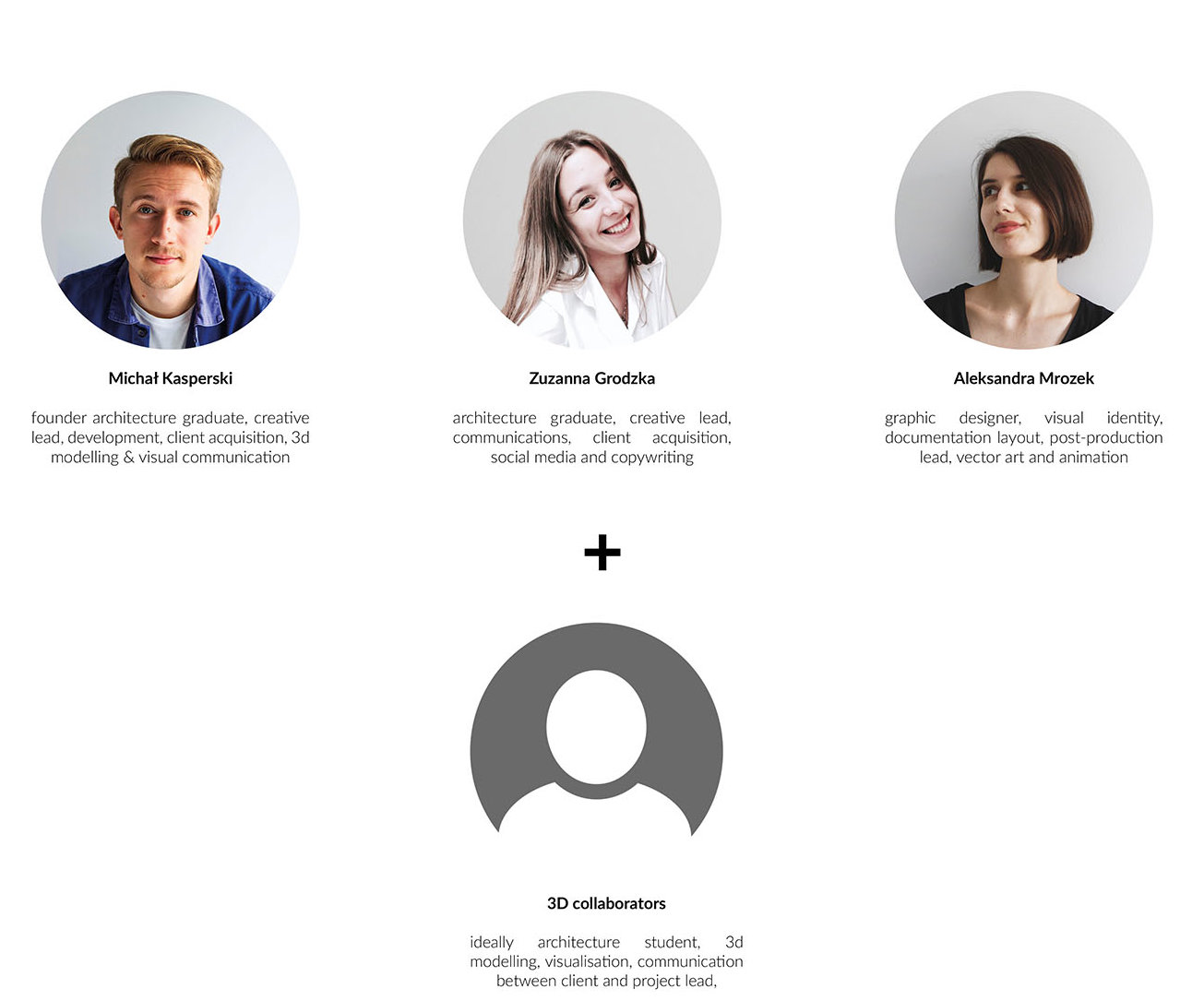
The interdisciplinary team consists of architecture graduates Michał Kasperski and Zuzanna Grodzka, and graphic designer Aleksandra Mrozek, with room for growth. Along the way, Kasperski teamed up with fellow students Zuzanna Grodzka and Aleksandra Mrozek, developing a full-fledged concept for a service in high quality visual communication for early design stages. “We want to support project initiators to get to the essence of their ideas. Using existing tools in a new way, we creatively visualise projects to help clients pitch their ideas to investors, or to gain funding. It’s about clearly sharing what is most important about the idea,” Kasperski tells. “Drip is a communication model for our clients, who want to Differentiate their ideas from others, to Reinforce their message, to Inform their audience and to Persuade the stakeholders.”
Share your idea with potential clients and investors. See what their reaction is, that will verify whether or not you have a good idea. Don’t wait to make it perfect, but adjust as you go.
Michał Kaperski, Drip VisualFeedback from people in the industry helped to further develop the concept for Drip Visual, even without a pre-defined idea. Kasperski: “The tutors encouraged us to communicate with professionals from practice. It pushed me to take the idea seriously, seeing people responding to the idea, picking it up, and wanting to test it out. We already finished our first projects!”
-
From working at a start-up, following a bridging semester and graduating on Architectural Engineering within the master's programme Architecture, Urbanism and Building Sciences to founding AplusV Solutions. Chris Aerts has long been exploring the potential of robotics and systemic changes in construction. "With smart software and automated processes, you can use robotics to make construction processes smarter, more sustainable and more cost-efficient," Aerts explains. "Robotics is a beautiful technology with a lot of potential, but design and production must be brought together. You need to know exactly how a building element is put together in order to digitise and automate its production." He shows an example of a timber-frame wall, which is assembled from a fixed number of elements. With the parametric configurator, you can specify exactly how high, wide, and thick the wall should be and how the window should be positioned. The production data are then automatically calculated and sent directly to the robotic arm in the factory, which can start assembling the wall. With a few button presses, a complete building element emerges from the factory.
It seems an obvious concept, but Aerts has built up a lot of experience to get to this point. "Among other things, I did an internship at three different companies, at one of which I also walked with a wheelbarrow on the construction site. That is where I realised how construction differs from other industries. I really believe that technology allows us to organise construction processes more intelligently. Construction experts have a great deal of insight, but they often apply this knowledge over and over again. If you record that knowledge, it becomes scalable and applicable." To be able to collect that knowledge, Aerts enters into collaborations with companies and institutions like TU Delft. "I have already given a lecture for BK-Launch and talked to a number of students about their ideas. Similar conversations with companies were most valuable to me at the time, too."
Check who your customers might be, and how you might fit your idea into a business model. Talk with prospective clients to see how the idea could work in practice.
Chris Aerts, AplusV Solutions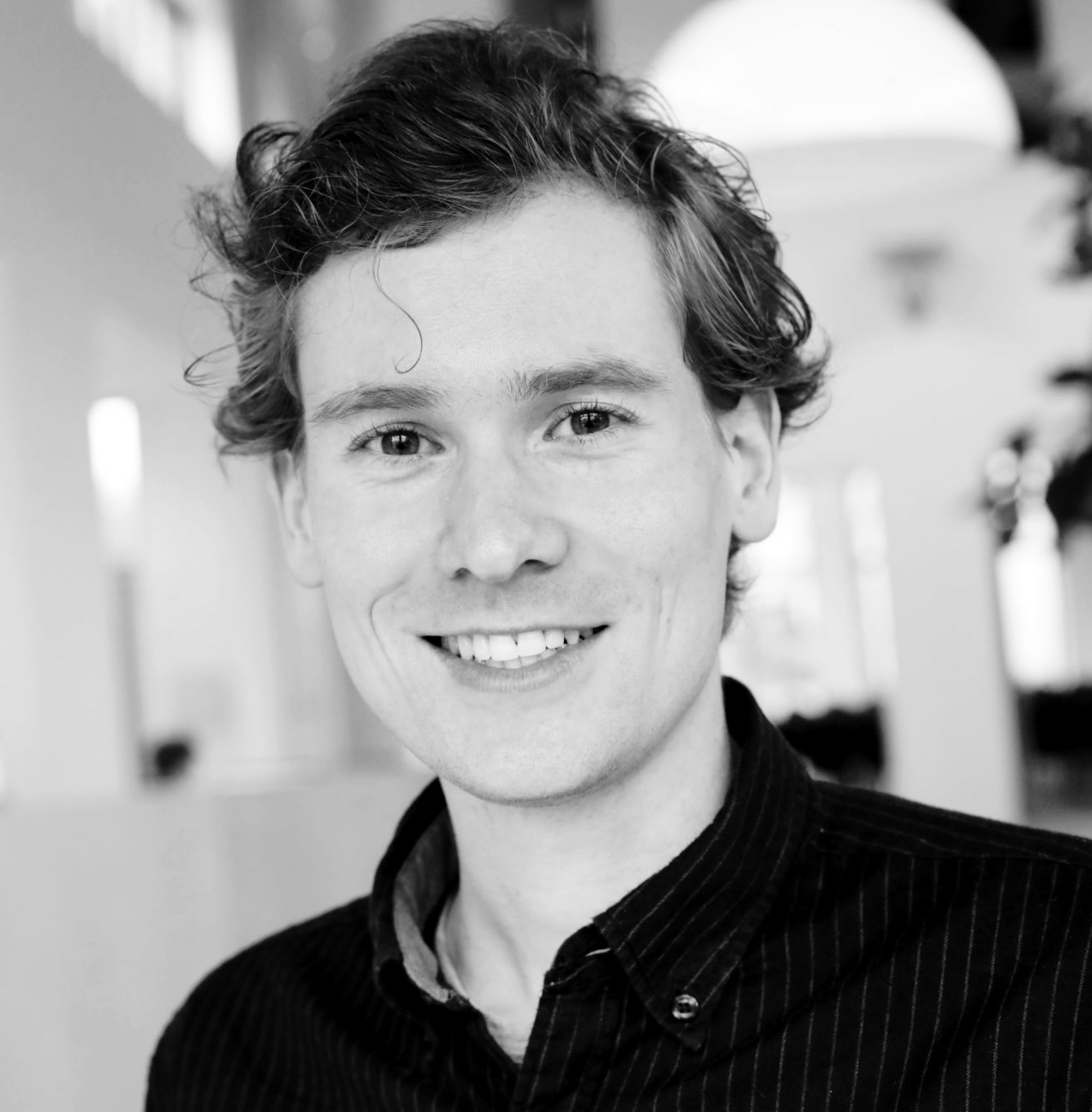
-
The adagio ‘Never change a winning team’ comes to mind with MOR Studio. The group of young architects and engineers with a clear focus on sustainability emerged from the larger MOR team, which participated in the Solar Decathlon 2019. “We felt like we could take our ambitious goals to create net-positive buildings even further,” explains co-founder Kosmas Spanidis. “We want to create buildings that give back more to the environment than they take out of it. Think of solutions like producing energy, allowing space for urban farming and water treatment, minimising waste streams, and the like. We built a good rapport with our industry partners during the Solar Decathlon, and actually met our first future client at the opening of our prototype at the Green Village.”
Within the team of seven architects, urbanists, and engineers, MOR Studio currently works on various research and design assignments. The integrated approach befits the multidisciplinary team, in which everyone focusses on their own expertise. “We have shared meetings throughout the week, and we celebrate the smallest things together. We are not just colleagues, but each other’s emotional support system as well.” And such a support system is vital to succeed, emphasises Spanidis. “We would have loved to have a course like BK-Launch while studying. You have to know what it is like to go from an idea to learning how the market works, what you need for a start-up, how to talk to people. That is also why we are happy to share our experiences within the platform through lectures.”
Talk with people and create a network around you. Not just for collaborations, but also for emotional support. Have patience and focus on your goal. Opportunities will come!
Kosmas Spanidis, MOR Studio
Join the club
BK-Launch is open to all great ideas, and to prospective mentors, running start-ups looking to connect or share experiences, and researchers who are diving into the merits of entrepreneurship in the built environment. Students may choose to follow the elective on Entrepreneurship or the BK-Launch design studio. “But if you have a good idea, you are always welcome to contact coordinators Thijs Asselbergs, Henri van Bennekom, Remon Rooij, or myself,” adds Wamelink.
Send your idea to the BK-Launch platform and see what we can do for you!”
Hans Wamelink, professor of Construction Management and Entrepreneurship
More information
